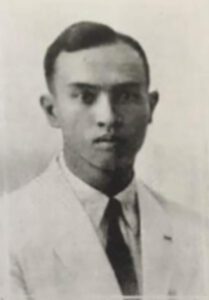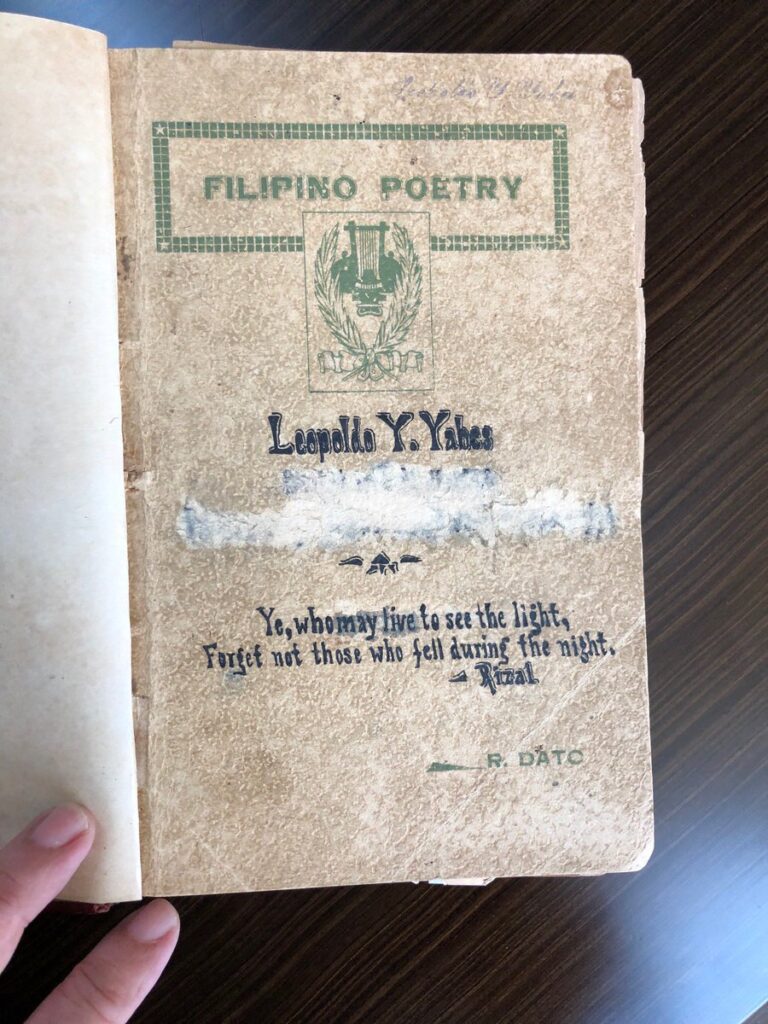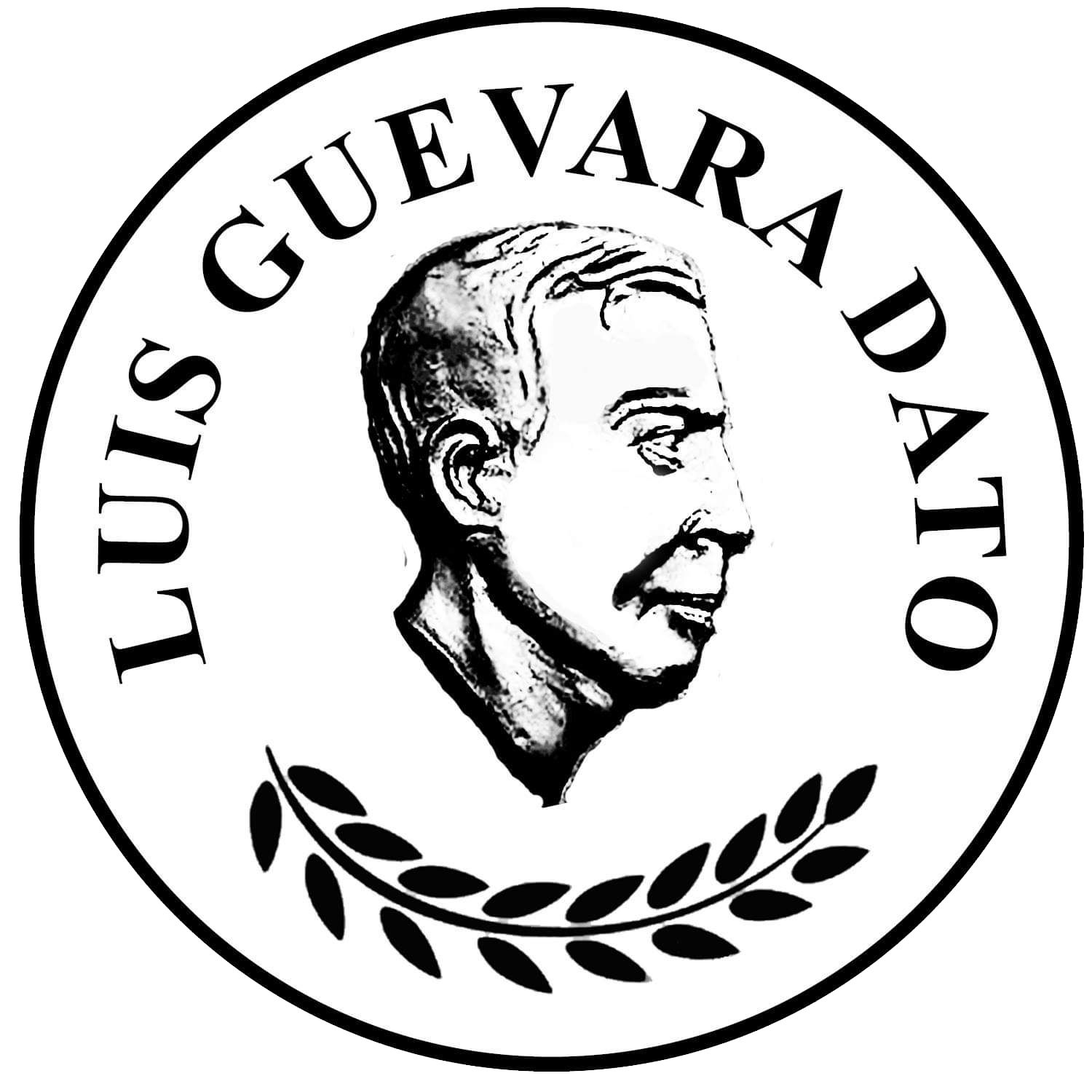by Stephen Cenon Dato Talla
Rodolfo Dato (April 17, 1899 – October 11, 1955) was a Filipino lawyer, editor and educator from Baao, Camarines Sur. His book “Filipino Poetry”1Dato, Rodolfo (1924). Filipino Poetry. Manila: J.S. Agustin & Sons., published in 1924, is one of the first anthologies of Filipino poets from 1911 to 1924. The book is regarded as the first published work to acknowledge the Filipino talents in English poetry writing in just about 20 years after the American occupation of the Philippines in 1898. He became the first Dean of Liberal Arts of the University of Nueva Caceres.

Family
Rodolfo was the second child of Eugenio Esplana Dato and Barbara Imperial Guevara. His siblings were: Francisca Dato Flores; Luis Dato (early Filipino poet and author of the The Spouse, Day on the Farm, etc); Soledad “Choleng” Dato Hidalgo (one of the senior editors of Bikolana magazine published in Naga City in the late 1970s); and Pablo Dato.
He married Manila Imperial Silva-Netto.
Education and Degree
Rodolfo Dato attended elementary at the Naga Elementary school, Camarines Sur; and graduated high school at the Camarines Sur Provincial High School. He finished his degree in Liberal Arts and Law at the University of the Philippines.
In 1925, he earned the degree of Master of Arts in Political Science with his thesis on “The Federal Party;” and in 1928, he earned the degree of Bachelor of Law at the University of the Philippines. He was a member of Philippine Academy of Social Sciences and was a member of the Philippine Bar.
Works and Career

With the support of his brother Luis, Rodolfo edited and published the book Filipino Poetry in 1924. In his Introduction, Rodolfo described the book as “a collection of the maiden songs of our native bards warbling in borrowed language,”2Dato, Rodolfo (1924). Filipino Poetry. Manila: J.S. Agustin & Sons. furthermore, that “the full flowering of our poetic art has not yet come, but the fertile field smiles abundant growth and gives promise of a rich and bountiful harvest in a day not far distant.”3Dato, Rodolfo (1924). Filipino Poetry. Manila: J.S. Agustin & Sons. The collection had works of early poets, writers like Maximo M. Kalaw, Fernando Maramag, Procopio Solidum, Maria Agoncillo and Luis G. Dato. The book “seems to be deeply saturated with the fragrance of the jasmines and the sampaguitas, vibrant with the mellifluous songs of the mayas…” 4Dato, Rodolfo (1924). Filipino Poetry. Manila: J.S. Agustin & Sons.
In the editorial section of the Philippine Magazine, January 1937, AVH Hartendorp wrote: “Rodolfo Dato has recently published a second collection of verses of his brother Luis Dato. It is entitled, “My Book of Verses” and was printed by N. S. Sanchez, Naga, Camarines Sur. Seven of the forty-seven poems originally appeared in the Philippine Magazine, two sonnets as far back as 1926. One of the most beautiful poems in the book is “The Spouse”, published in the January, 1934 issue. The little book should be in the collection of every one interested in Filipino poetry in English.”5Philippine magazine [Vol. 34, no. 1] Manila,: Philippine Education Co.
Educator
In 1926, Dato was appointed as instructor of Law and Political Science at the University of the Philippines; and later became Assistant Director of the Camarines Sur Catholic Academy (later to become the Ateneo de Naga University). In the late 1940s, he helped Dr. Jaime Hernandez during the first few years of the Nueva Caceres Colleges (later the University of Nueva Caceres), and became the first dean of the College of Liberal Arts of the university. One of the first two buildings constructed inside the University of Nueva Caceres campus was named after him — Dato Hall.
The University of Nueva Caceres Hymn was composed by Luis Ocampo Aguirre, and the lyrics written by Rodolfo G. Dato,
Nueva caceres , before
God’s altar high we sing,
And pledge that ever more
To thee we’ll honors bringWhen thy portals fade from sight
And darkness dims the day,
They torch shall be right
To guide us on our wayAnd o’er the Bicol, Land and Sea
They flag shall ever wave,
The Red and Gray for UNC
And youth upright and brave.
Rodolfo passed away in October 11, 1955 in his house in Balintawak Street, Naga City. He was 56 years old.
Footnotes
- 1Dato, Rodolfo (1924). Filipino Poetry. Manila: J.S. Agustin & Sons.
- 2Dato, Rodolfo (1924). Filipino Poetry. Manila: J.S. Agustin & Sons.
- 3Dato, Rodolfo (1924). Filipino Poetry. Manila: J.S. Agustin & Sons.
- 4Dato, Rodolfo (1924). Filipino Poetry. Manila: J.S. Agustin & Sons.
- 5Philippine magazine [Vol. 34, no. 1] Manila,: Philippine Education Co.



So the Dato siblings were really in the world of words. RGD’s words to describe Filipino Poetry were as enticing as Luis Dato’s. To have a poetic lawyer, a poet and an editor made me wonder what kind of parents they had. Were they interestingly poetic, too?
Hello po. Their father, Lolo Enyo, was a former seminarian turned lawyer (probably became a local judge, i am still looking into it); and their mother, Lola Bayang, was a graduate of Collegio de Santa Isabel before the turn of the 20th century. Both of them were quite smart and progressive-minded during the time when there was a paradigm shift of culture, and language.
I ‘ve heard and remember a certain story about Rudolfo Dato that after graduating from the university he work as a custodian or of some sort of at the National Library that attracted the young Luis to read books that inspire him to make some literary works of his own.I hope you can dig on this.
Before 1924, while Luis G. Dato was still in UP High School Manila, his older brother tasked him to read filipino poems in english in the Filipiniana Division of the National Library in Intramuros for Rodolfo’s anthology, Filipino Poetry. He was given discretion to select the poems that will be included on the anthology. That inspired LGD to write “Among the Hills.” That piece of information was written by LGD in his “An Autobiographical Sketch” (https://luisgdato.com/luis-g-dato-an-autobiographical-sketch/#How_I_Learned_to_Write_Poetry
Thank you.
[…] Philippine Commonwealth” was an article sent by Atty. Rodolfo Dato to The Tribune in 1935. (The Tribune was a Philippine newspaper from 1935 to 1945.) The short […]